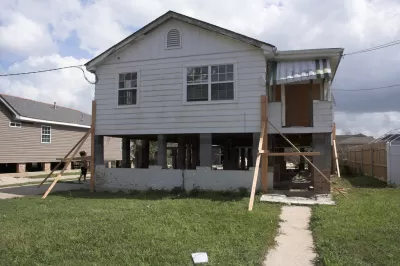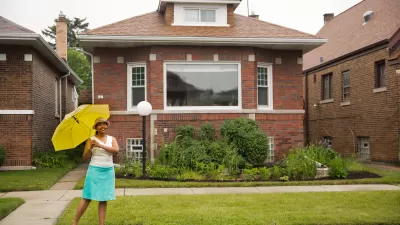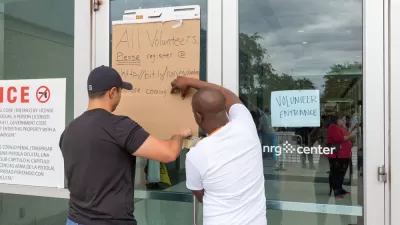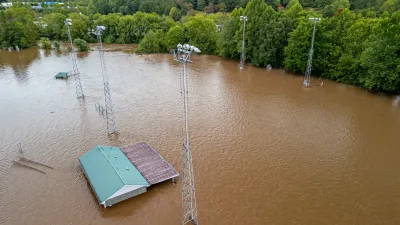New research shows that modern building codes have prevented around $27 billion in damage from natural disasters between 2000 and 2016, yet many cities still operate under decades-old regulations.

To adapt to the effects of rising sea levels, increasingly destructive wildfires, and longer storm seasons, many local governments have implemented updated building codes that recognize the realities of climate change and adapt building requirements to more adequately prepare for future disasters. These codes, which include increased elevation for houses in flood zones, wind-resistant roofs, and earthquake-safe construction requirements, save homes and businesses from billions of dollars in damage and make communities more resistant to the ravages of natural disasters. Yet recent research published by the Federal Emergency Management Agency(FEMA) shows that more than a third of new construction in the United States is happening in places with building guidelines that are more than 20 years old—or that have none at all.
While climate change arguments tend to get bogged down in partisan debates, agencies like FEMA have created "resiliency" initiatives as a way to garner bipartisan support for projects that boost infrastructure spending for weather-proofing homes and limiting damage from natural disasters. FEMA's Building Resilient Infrastructure and Communities program provides grant funding to local governments that want to update their building codes or strengthen enforcement of existing regulations. If implemented nationwide, FEMA estimates that updated building codes could accumulate up to $132 billion in avoided property losses by 2040.
FULL STORY: Updated Building Codes Prevent Billions in Disaster Damages. Many Localities Don’t Have Them in Place.

Maui's Vacation Rental Debate Turns Ugly
Verbal attacks, misinformation campaigns and fistfights plague a high-stakes debate to convert thousands of vacation rentals into long-term housing.

Planetizen Federal Action Tracker
A weekly monitor of how Trump’s orders and actions are impacting planners and planning in America.

San Francisco Suspends Traffic Calming Amidst Record Deaths
Citing “a challenging fiscal landscape,” the city will cease the program on the heels of 42 traffic deaths, including 24 pedestrians.

Defunct Pittsburgh Power Plant to Become Residential Tower
A decommissioned steam heat plant will be redeveloped into almost 100 affordable housing units.

Trump Prompts Restructuring of Transportation Research Board in “Unprecedented Overreach”
The TRB has eliminated more than half of its committees including those focused on climate, equity, and cities.

Amtrak Rolls Out New Orleans to Alabama “Mardi Gras” Train
The new service will operate morning and evening departures between Mobile and New Orleans.
Urban Design for Planners 1: Software Tools
This six-course series explores essential urban design concepts using open source software and equips planners with the tools they need to participate fully in the urban design process.
Planning for Universal Design
Learn the tools for implementing Universal Design in planning regulations.
Heyer Gruel & Associates PA
JM Goldson LLC
Custer County Colorado
City of Camden Redevelopment Agency
City of Astoria
Transportation Research & Education Center (TREC) at Portland State University
Jefferson Parish Government
Camden Redevelopment Agency
City of Claremont





























